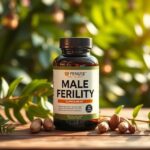Best Supplements for Women in Their 20s: Top Picks for Health
Best Supplements for Women in Their 20s: Taking care of your body in your 20s sets the foundation for long-term health. A balanced diet is essential, but sometimes it’s hard to get all the nutrients your body needs. That’s where targeted supplementation can help. Vitamins and minerals play a key role in supporting energy, immune function, and overall wellness.
For example, Vitamin D3 supports bone strength and immune health, while calcium is vital for maintaining strong bones. Iron is another important nutrient, especially for maintaining healthy blood levels and energy. Adding these to your daily routine can bridge nutritional gaps and enhance your health.
Products like Nature Made® Vitamin D3 Extra Strength Gummies and Vitamin B12 Softgels are great options. They provide essential nutrients in an easy-to-take form. By focusing on your nutrient intake now, you can support your body’s needs and reduce the risk of deficiencies later in life.
Key Takeaways
- Targeted supplementation can help meet nutrient needs for long-term health.
- Vitamin D3 supports bone strength and immune function.
- Calcium is essential for maintaining strong bones.
- Iron helps maintain healthy blood levels and energy.
- Products like Vitamin B12 Softgels provide easy nutrient intake.
- What is the best fiber supplement for women?
- Top Rated Fertility Pills for Men – Get Pregnant Faster
- Sexual Health Information for Your Wellbeing
Understanding Nutritional Needs in Your 20s
Nutrition plays a critical role in shaping your health during your 20s. This is a time when your body is still developing, and making smart dietary choices can have lasting effects. A balanced diet is the cornerstone of meeting your body’s needs, but modern lifestyles often create challenges.
The Importance of a Balanced Diet
Eating a variety of foods ensures you get the essential nutrients your body requires. Whole grains, lean proteins, fruits, and vegetables provide vitamins and minerals that support energy, immune function, and overall health. Without a balanced diet, you may miss out on key nutrients like iron, calcium, and Vitamin D.
For example, calcium is vital for bone strength, while iron helps maintain healthy blood levels. A diet rich in these nutrients can reduce the risk of deficiencies and support long-term health.
Identifying Common Nutritional Gaps
Many young women face nutritional gaps due to busy schedules or limited sun exposure. Nearly one-third of Americans are deficient in Vitamin D, which is crucial for bone health and immune function. Low sunlight during winter months can make this even worse.
Other common gaps include low intake of iron and magnesium. Iron supports energy levels, while magnesium helps with muscle function and stress management. Monitoring your diet and making proactive adjustments can help bridge these gaps.
Practical strategies include adding fortified foods or considering targeted supplementation. For instance, Vitamin D supplements can be a great option during low-sunlight months. By staying mindful of your nutrient intake, you can support your body’s needs and maintain optimal health.
Best Supplements for Women in Their 20s
Your 20s are a pivotal time to focus on wellness and vitality. While a balanced diet is essential, busy lifestyles and dietary gaps can make it challenging to meet all your nutritional needs. This is where supplementation steps in as a practical solution to ensure your body gets what it needs to thrive.
Why Supplementation Matters
Supplementation bridges the gap between what you eat and what your body requires. For instance, Vitamin D is crucial for calcium absorption, which supports bone health. Without enough Vitamin D, your body may struggle to utilize calcium effectively, even if you consume it in your diet.
Similarly, iron plays a vital role in maintaining healthy blood levels and energy. Low iron levels can lead to fatigue and other health issues. Supplements like Nature Made® Iron Tablets can help address this gap, especially for those with dietary restrictions or higher needs.
Key Ingredients to Look For
When choosing supplements, focus on ingredients that address common deficiencies and support overall health. Here are some essentials:
- Vitamin D: Enhances calcium absorption and supports immune function.
- Iron: Maintains healthy blood levels and combats fatigue.
- Magnesium: Supports muscle function and helps manage stress.
- Folic Acid: Promotes cell health and is especially important for heart health.
Products like Vitamin B12 Softgels and magnesium supplements are excellent options to consider. They provide these nutrients in an easy-to-take form, making it simple to incorporate into your routine.
Remember, supplementation is not a replacement for a healthy diet but a way to enhance it. Consulting a healthcare professional can help tailor your choices to your specific needs, ensuring you get the most benefit.
Essential Vitamins and Minerals for Youthful Well-Being
Building a strong foundation for lifelong health starts with understanding your body’s needs. Essential vitamins and minerals play a crucial role in maintaining energy, strength, and overall vitality. By focusing on key nutrients, you can support your body’s functions and stay resilient.
Supporting Bone, Muscle, and Immune Health
Strong bones and muscles are vital for an active lifestyle. Calcium is a cornerstone for bone health, but it works best when paired with Vitamin D. Together, they enhance calcium absorption, ensuring your bones stay dense and strong.
Magnesium is another key player. It supports muscle function and helps manage stress levels. Including these nutrients in your daily routine can keep your body functioning at its best.
The Role of Vitamin D, Calcium, Iron, and B Vitamins
Vitamin D and calcium are a powerful duo. Vitamin D helps your body absorb calcium, which is essential for bone strength. Products like Nature Made® Calcium with Vitamin D3 Softgels make it easy to get both in one dose.
Iron is equally important. It helps maintain healthy blood levels and prevents fatigue. For those with higher needs, iron supplements can be a practical solution.
B vitamins, including B-complex and folate, support cellular function and overall vitality. They play a role in energy production and help keep your immune system strong. Incorporating these nutrients into your routine can make a significant difference in how you feel every day.
Lifestyle Factors and Effective Supplement Strategies
Your daily habits play a big role in how your body absorbs nutrients and stays healthy. From exercise to stress management, the way you live can enhance or hinder your overall well-being. By combining smart lifestyle choices with the right supplements, you can optimize your health and feel your best every day.
Exercise, Stress Management, and Nutrient Absorption
Regular physical activity increases your body’s need for essential nutrients. Exercise boosts metabolism and can deplete key vitamins and minerals like magnesium and iron. To support recovery and maintain energy, consider adding a supplement like Nature Made® Wellblends™ Sleep & Recover™ Gummies to your routine.
Stress also impacts how your body absorbs nutrients. High stress levels can reduce the absorption of vitamins like B-complex and magnesium. Techniques like mindfulness, yoga, and deep breathing can help manage stress and improve nutrient uptake.
Here are some practical tips to combine lifestyle and supplementation:
- Stay active with regular exercise to boost nutrient needs and absorption.
- Practice stress management techniques like meditation or journaling.
- Choose supplements that support recovery, such as magnesium for muscle function.
- Pair a balanced diet with targeted supplements to fill nutritional gaps.
Remember, supplements are not a replacement for a healthy lifestyle but a way to enhance it. By focusing on exercise, stress reduction, and smart supplementation, you can support your body’s needs and maintain optimal health.
Expert Insights and Supplement Science
Understanding the science behind supplementation can help you make informed choices for your health. Research shows that targeted supplements can significantly improve overall well-being. Experts agree that proper nutrient intake is key to maintaining vitality and health.
Research-Backed Recommendations
Studies highlight the importance of specific nutrients for different life stages. For example, Vitamin D deficiency is common, especially in areas with limited sunlight. Research suggests that daily supplementation can support bone health and immune function.
Another critical nutrient is iron, which helps maintain healthy blood levels. Low iron levels can lead to fatigue and other health issues. Experts recommend iron supplements for those with dietary restrictions or higher needs.
Here are some key findings to consider:
- Magnesium supports muscle function and stress management.
- Omega-3 fatty acids promote heart health and reduce inflammation.
- B vitamins, including folate, are essential for cellular function and energy production.
Tips from Nutrition and Health Professionals
Health professionals emphasize the shift from generic multivitamins to targeted supplementation. Free Soul Nutritionist Harriet Well suggests, “Personalized supplements based on lifestyle and dietary patterns can yield better results.”
Jules Strauss, a renowned nutrition expert, adds, “Vitamin D and omega-3s are non-negotiable for optimal health, especially as we age.”
Here are some practical tips from experts:
- Consult a nutritionist to assess your specific nutrient needs.
- Choose supplements that address your unique health concerns.
- Pair supplementation with a balanced diet for maximum benefits.
By combining scientific research with expert advice, you can create a supplementation plan that supports your health and well-being.
In Conclusion
Prioritizing your nutritional health today can lead to a stronger, healthier tomorrow. Targeted supplementation, combined with a balanced diet and active lifestyle, helps bridge gaps in essential nutrients like Vitamin D, calcium, iron, and B vitamins. These play a vital role in supporting bone strength, energy levels, and overall well-being.
Experts recommend tailoring your approach to meet individual needs. Consulting a healthcare professional can help you choose the right products, such as Nature Made® Calcium with Vitamin D3 Softgels, to optimize your nutrient intake.
By investing in your health now, you’re laying the foundation for a vibrant future. Take the next step—explore your options or discuss a personalized plan with a trusted provider. Your body will thank you.
FAQ: Women’s Health in Their 20s
Q1. What vitamins should a woman in her 20s take every day?
Ans: Key vitamins include Vitamin D (supports bone/immune health), Folate (vital for reproductive health), Iron (combats anemia from menstruation), and B12 (energy/metabolism). Omega-3s (brain health) and calcium (bone strength) are also beneficial. Prioritize a nutrient-rich diet and supplement gaps as needed.
Q2. Which multivitamin is best for women in their 20s?
Ans: Opt for women-specific formulas like Ritual Essential for Women 18+ or Nature Made Multi for Her. These include iron, folate, and vitamin D. Choose brands with third-party certifications (e.g., USP, NSF) for quality assurance.
Q3. What are the top 3 vitamins for women?
- Vitamin D: Enhances calcium absorption and immunity.
- Iron: Prevents fatigue and supports blood health.
- Folate (B9): Critical for cell function and prenatal health.
Q4. Is it good to take vitamins in your 20s?
Ans: Yes, especially if dietary gaps exist (e.g., vegan diets lacking B12). Supplements can address deficiencies, but prioritize whole foods. Consult a healthcare provider to avoid over-supplementation.
Q5. How can I be healthy in my 20s?
- Eat balanced meals (fruits, veggies, lean proteins, whole grains).
- Exercise regularly (150 mins/week of moderate activity).
- Prioritize 7-9 hours of sleep nightly.
- Manage stress via mindfulness or hobbies.
- Avoid smoking and limit alcohol.
Q6. Who should not take calcium supplements?
Ans: Avoid if diagnosed with hypercalcemia, kidney stones, or kidney disease. Those on certain medications (e.g., thyroid drugs) should consult a doctor first. Excessive calcium can pose health risks.
Focus on foundational health habits in your 20s to support long-term wellness. Supplements should complement, not replace, a nutrient-dense diet. Always seek professional guidance for personalized advice.













The gamespkdownload site is super easy to use. Found exactly what I was looking for and the download was quick. Check it out: gamespkdownload